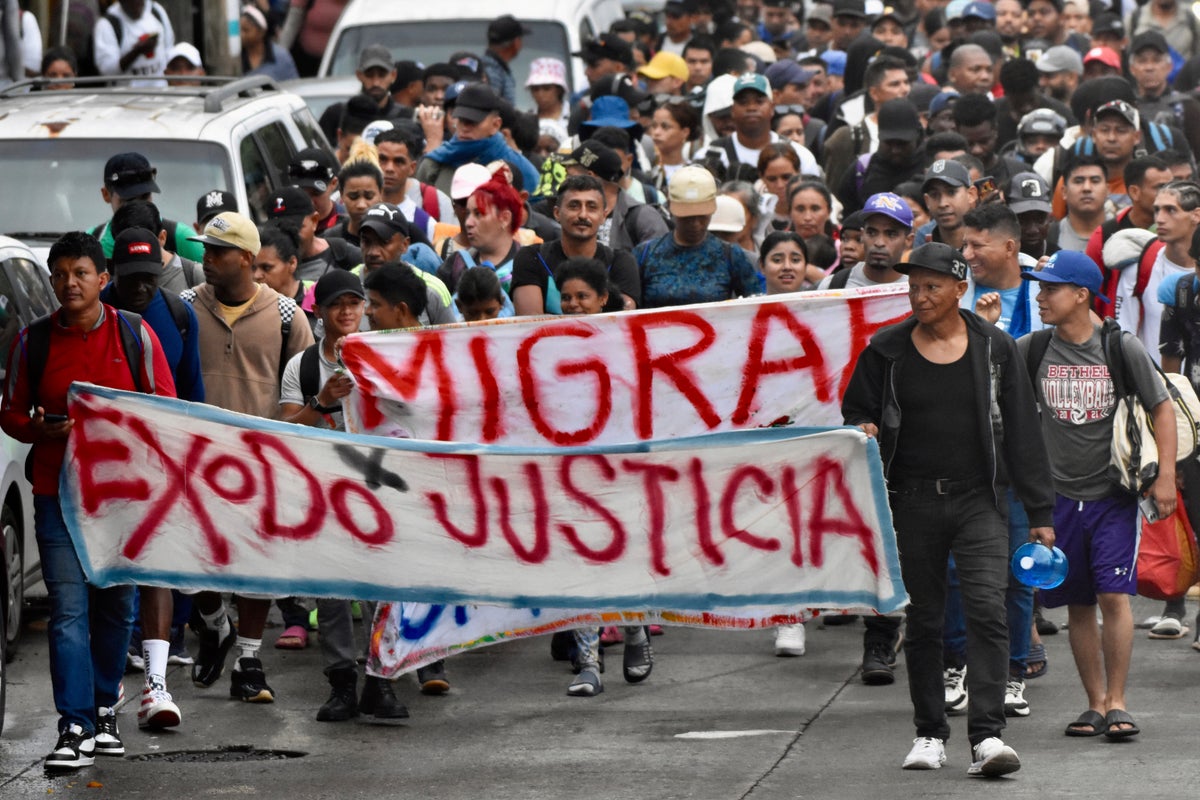Your support helps us to tell the story
From reproductive rights to climate change to Big Tech, The Independent is on the ground when the story is developing. Whether it’s investigating the financials of Elon Musk’s pro-Trump PAC or producing our latest documentary, ‘The A Word’, which shines a light on the American women fighting for reproductive rights, we know how important it is to parse out the facts from the messaging.
At such a critical moment in US history, we need reporters on the ground. Your donation allows us to keep sending journalists to speak to both sides of the story.
The Independent is trusted by Americans across the entire political spectrum. And unlike many other quality news outlets, we choose not to lock Americans out of our reporting and analysis with paywalls. We believe quality journalism should be available to everyone, paid for by those who can afford it.
Your support makes all the difference.Read more
About 300 migrants walked out of this southern Mexican city Wednesday, hoping to move north, even as the activist who helped organize them remained in police custody over allegations of human trafficking.
Mexico President Claudia Sheinbaum said that Luis García Villagrán, the leader of a local nongovernmental organization arrested Tuesday in Tapachula, “is not an activist.” She said he was tied to trafficking people, “that is the crime.”
Sheinbaum said Wednesday during her daily news briefing that there had been an arrest order pending for García Villagrán for years. It was unknown why the outspoken and very public figure hadn’t been arrested earlier.
The group of migrants that left Tapachula, near the border with Guatemala, earlier Wednesday was small in comparison to migrant caravans in years past. There has been very little movement of migrants in public since U.S. President Donald Trump took office in January, though migration numbers had been falling even prior to that.
Those walking Wednesday said their goal was not reaching the United States, but rather central Mexico. They complained that they had been waiting for months to legalize their status or receive asylum.
In recent years, the Mexican government has worked to contain migrants in southern Mexico — far from the border with the United States. At times, this strategy has swollen migrant numbers in Tapachula until hundreds set out walking in protest. Chiapas is Mexico’s poorest state and migrants complain there is little work or available housing.
Johnny López of Ecuador walked with his wife and three children, including a baby born in Tapachula while they awaited a determination on their asylum application, which was eventually rejected. Now they planned to travel to Mexico City where López hoped to find work to support his family.
The migrants were escorted by immigration agents, police, marines and paramedics.
Heyman Vázquez, a Catholic priest, also accompanied them. He called García Villagran’s arrest “unjust.”
Vázquez said it showed the Mexican government’s concern over migrant caravans, which he said would be resolved by making it easier for migrants to legalize their immigration status.
____
Follow AP’s coverage of Latin America and the Caribbean at https://apnews.com/hub/latin-america
